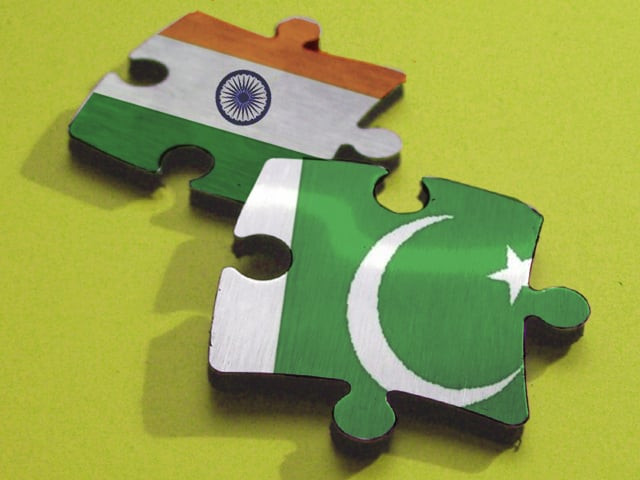Trade with India: ‘Business centres should be set up at borders to resolve visa issues’
Business community proposes business centres to ensure contact between businessmen on both sides of the border.

At these centres, businessmen would not require visas for entering and exiting, and the business communities of both the countries will be able to maintain contact by conducting business exhibitions and exchange product samples.
The business community suggested that both the countries should push the borders two kilometers back from where they are now and use that space to create a buffer to facilitate the business community by conducting different business exhibitions, setting up cinemas, hospitals, meeting centers and parks.
They added that this would not only help the business communities of both the sides to exchange their products and to place orders but also for the governments as they won’t have to issue visas to a large number of people.
These suggestions were presented during a discussion on free trade and granting of Most Favoured Nation (MFN) to India held between renowned economists of the country, including former finance minister Shahid Javed Burki, former foreign secretary Tasnim Noorani and Doctor Ayesha Ghous Pasha of Beaconhouse National University (BNU) at the Lahore Chamber of Commerce and Industries (LCCI) on Monday.
BNU has started a study into the issue of free trade and granting of MFN status to India, for which they were hearing the concerns of the business community. The study is expected to be completed by October-November, following which road shows in three main cities will be conducted to educate the public.
The business community for their part expressed their concerns on the Non-Tariff Barriers (NTB) dominated by the visa policy. They maintained that it might be easy for prominent businessmen to receive invitation from their Indian counterparts, but the one who just started or are planning to start trade or business with India might not be able to avail this facility.
They added that such spaces at the borders would facilitate and boost economic activities.
Speaking at the occasion, Burki said that when trade between a large and a small economy starts, economics suggested that the smaller economy would always benefit from it.
“I believe that at macro level, Pakistan would benefit especially in the industrial, economy and agriculture sector. Some sectors might be hurt, but not as much as is feared. When China entered in the Pakistani market, same fears were circulated among the business community,” he added.
However, both experts and the business community agreed that the trade between the countries should be based on mutual respect with equal opportunities for businessmen on both sides of the border.
President LCCI Irfan Qaiser Sheikh was also eager to start trade with India but made it clear that the MFN status to India would be of little benefit to Pakistan until and unless all Pakistan-specific NTBs are removed and core issues are addressed.
He said that the presence of unresolved core issues between the two countries and multiple NTBs imposed by India, the desired results from opening up trade cannot be fully realised.
“This is a very serious challenge for both the countries in moving forward,” he stated.
Sheikh added that it was imperative that the Indian business community actively and effectively lobbies its government to expeditiously alleviate fears of Pakistani businessmen regarding Pakistan-specific NTBs.
A comprehensive review exercise of all perceived and real NTBs should be conducted with the private sector of both sides in the driving seat, he added.



















COMMENTS
Comments are moderated and generally will be posted if they are on-topic and not abusive.
For more information, please see our Comments FAQ